MedCourse Audioblog
The MedCourse Audioblog is the audio version of our blog. Our articles are aimed at UK junior doctors, nurse practitioners, and physician associates. We post speciality guides, career advice, journal clubs, and short stories by UK healthcare professionals. Check out the blog at https://medcourse.co.uk/blog
Episodes
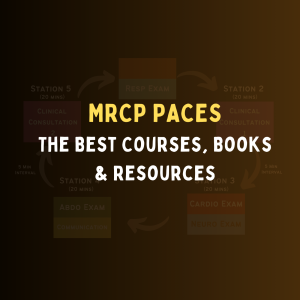
Thursday May 02, 2024
Thursday May 02, 2024
This is an article about resources for the MRCP PACES exam. It discusses different resources including courses, books, podcasts, and blogs. Some resources are more helpful than others, depending on your learning style and budget.
The article recommends using a variety of resources. Online courses are a good option for those who want access to instructors and practice exams. PACES books are a good way to learn more about the exam and to practice cases.
Podcasts are a good way to learn passively while commuting or doing other tasks. Blogs can provide tips and insights from other doctors who have passed the exam.
Read the full article on PACES resources.
Learn how to pass the PACES exam
See the changes with the new PACES23 format

Wednesday Aug 23, 2023
Wednesday Aug 23, 2023
Taking time out of training after finishing the Foundation years is becoming increasingly popular.
There are many reasons why you may want to take time out of training, such as to travel, earn money, or enjoy some free time.
One option for taking time out of training is to work in a Teaching Fellow Job.
Teaching Fellows are doctors who spend a proportion of their time teaching. There are many benefits to working as a Teaching Fellow, such as developing your teaching skills, getting a postgraduate qualification, and boosting your portfolio.
If you are interested in becoming a Teaching Fellow, there are a few things you can do to prepare, such as setting up alerts on the NHS Jobs website, reading the job description carefully, and being clear in your own mind about what you are looking for.
When applying for a Teaching Fellow job, it is important to write a strong application form and prepare for the interview.
Taking time out of training can be a great way to explore your interests and develop your skills. Working as a Teaching Fellow is a great way to develop your teaching skills and get a postgraduate qualification.
There are many benefits to working as a Teaching Fellow, such as boosting your portfolio and improving your chances of getting into speciality training.

Wednesday Aug 23, 2023
Wednesday Aug 23, 2023
A side hustle is a business that you can run alongside your full-time employment.
There are many reasons why doctors might want to start a side hustle, such as to earn extra money, pursue something outside of clinical work, or gain new skills.
Some common side hustle ideas for doctors include medical education, medical writing, health tech, and content creation.
Starting a side hustle takes hard work and determination, but it can be a rewarding experience.
If you're considering starting a side hustle, be sure to do your research and create a plan.
Here are some additional tips for doctors who are interested in starting a side hustle:
Choose a side hustle that you're passionate about and that fits your skills and interests.
Be realistic about how much time you can commit to your side hustle.
Set clear goals for your side hustle and track your progress.
Market your side hustle to potential clients or customers.
Be patient and persistent. It takes time to build a successful side hustle.
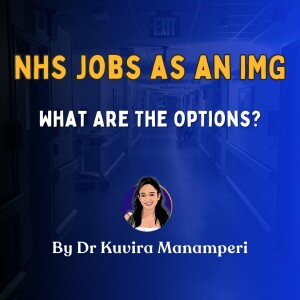
Thursday Aug 17, 2023
Thursday Aug 17, 2023
The NHS Foundation Programme is a two-year training program for newly graduated doctors. It provides them with the skills, knowledge, and experiences they need to become competent and compassionate clinicians.
In this article, Dr Kuvira Manamperi discusses the pros and cons of joining the foundation programme as an IMG, as well as when FY2 standalone, staff grade NHS jobs, or the MTI scheme might be more appropriate.
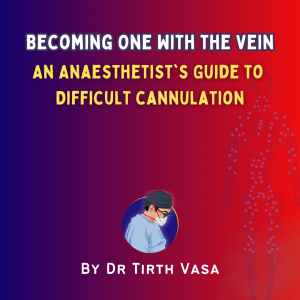
Thursday Aug 17, 2023
Thursday Aug 17, 2023
In this article by Dr Tirth Vasa, we explore the anaesthetist's perspective on difficult cannulation. He explores his top 8 tips on how to get the cannula in event the most difficult of veins.
Dr Vasa will help you to become one with the vein and succeed in difficult IV access.
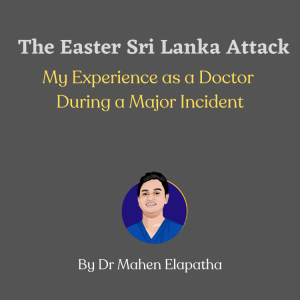
Thursday Aug 10, 2023
Thursday Aug 10, 2023
This article describes the author's experience of working as a doctor in the aftermath of the Easter Sunday bombings in Sri Lanka in 2019. The author, Mahen Elapatha, describes the chaos and devastation of the attacks, and the challenges of working in a resource-limited setting.
The author arrived at the scene of the attacks shortly after they happened. They were met with scenes of carnage and destruction. There were bodies and body parts everywhere, and the air was thick with the smell of smoke and blood. The author and their colleagues worked tirelessly to triage the patients and provide them with the necessary medical care.
The author describes the challenges of working in a resource-limited setting. There were not enough doctors, nurses, or medical supplies. The author and their colleagues had to improvise and use whatever resources they could find. They also had to deal with the psychological trauma of the attacks.
Despite the challenges, the author and their colleagues were able to save many lives. They worked tirelessly for days, providing medical care to the injured and comforting the grieving. The author is proud of the work they did, and they believe that it made a difference in the lives of many people.
Here are some additional takeaways from the article:
The Easter Sunday bombings in Sri Lanka were a horrific tragedy that resulted in the deaths of over 250 people.
The attacks also caused widespread injuries and trauma.
Medical professionals played a vital role in the aftermath of the attacks, providing care to the injured and comforting the grieving.
Working in a resource-limited setting can be challenging, but it is also incredibly rewarding.
The author is proud of the work they did in the aftermath of the Easter Sunday bombings, and they believe that it made a difference in the lives of many people.
If you have educational needs that arise from this experience, please check out our live courses and on-demand courses.
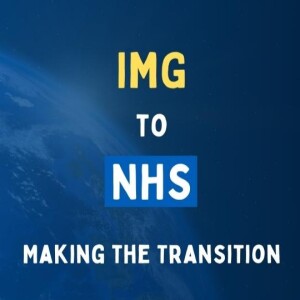
Thursday Aug 10, 2023
Thursday Aug 10, 2023
The article "Transition: IMG to NHS" by MedCourse provides a comprehensive guide for international medical graduates (IMGs) who are looking to transition to the NHS. The article covers a wide range of topics, including:
The eligibility requirements for IMGs to work in the NHS
The application process for IMGs to work in the NHS
The challenges that IMGs can expect to face when transitioning to the NHS
How to overcome the challenges of transitioning to the NHS
The article also includes a number of helpful tips for IMGs, such as:
Start planning your transition to the NHS early.
Do your research and understand the eligibility requirements and the application process.
Be prepared to face challenges and be flexible.
Network with other IMGs who have successfully transitioned to the NHS.
Seek support from professional organizations and mentors.
The article is a valuable resource for IMGs who are looking to transition to the NHS. It provides practical advice and helpful tips that can help IMGs to navigate the process and to be successful in their transition.
Here are some additional highlights from the article:
The NHS is a large and complex organization, so it is important for IMGs to do their research and understand the eligibility requirements and the application process before they start the transition process.
IMGs can expect to face a number of challenges when transitioning to the NHS, such as: differences in the medical system, cultural differences, and language barriers.
However, IMGs who are prepared for the challenges and are flexible can be successful in their transition to the NHS.
There are many factors IMG need to consider, including the PLAB exam and MTI scheme.
IMGs should network with other IMGs who have successfully transitioned to the NHS and seek support from professional organizations and mentors.
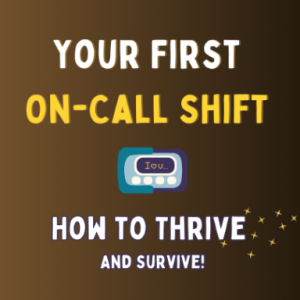
Thursday Aug 10, 2023
Thursday Aug 10, 2023
The article "A Back Pocket Guide to Your First 'On-call' Shift" by MedCourse provides a comprehensive guide for junior doctors who are about to start their first on-call shift. The article covers a wide range of topics, including:
What is an on-call shift?
What to expect during an on-call shift
How to prepare for an on-call shift
How to stay safe during an on-call shift
How to debrief after an on-call shift
The article also includes a number of helpful tips for junior doctors, such as:
Make sure you have a good understanding of the on-call rota and the responsibilities of an on-call doctor.
Get a good night's sleep before your on-call shift.
Eat a healthy breakfast before your on-call shift.
Take breaks throughout your on-call shift.
Don't be afraid to ask for help if you need it.
Debrief with your colleagues after your on-call shift.
Deal with Emergencies.
The article is a valuable resource for junior doctors who are about to start their first on-call shift. It provides practical advice and helpful tips that can help junior doctors to stay safe and to have a successful on-call shift.
Here are some additional highlights from the article:
On-call shifts are a normal part of the job for junior doctors. They can be challenging, but they are also an opportunity to learn and to gain experience.
Junior doctors should be prepared for a range of tasks during an on-call shift, including: reviewing patients, dealing with emergencies, and prescribing medication.
It is important for junior doctors to stay safe during on-call shifts. This means getting enough sleep, eating healthy meals, and taking breaks.
Junior doctors should also be prepared to ask for help if they need it. There is no shame in asking for help from more senior colleagues.
Debriefing after an on-call shift is an important way to reflect on the experience and to learn from it. It is also a good opportunity to support your colleagues.
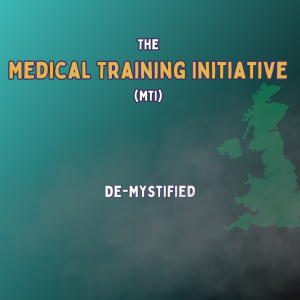
Thursday Aug 10, 2023
Thursday Aug 10, 2023
In this article we discuss the Medical Training Initiative. The author, Tirth, decided to apply for the MTI scheme in the UK, which is a program for international medical graduates to train in the NHS for up to 24 months.
The author describes the MTI process as daunting and complicated. They had to meet certain eligibility criteria, including having a primary medical qualification from an internationally recognized medical institution and having completed at least 3 years of postgraduate training in their home country. They also had to apply for the program through the Royal College of their chosen specialty.
The author emphasizes that MTI posts are very rare and competitive, so it is important to have a strong application and to be prepared for a long application process. They also warn that MTI posts only offer employment for 24 months, after which the IMG must return to their home country.
Overall, the author's text is a helpful guide for IMGs who are considering applying for the MTI scheme. It provides a detailed overview of the application process and the challenges that IMGs can expect to face.
Here are some additional takeaways from the text:
The MTI scheme is a great opportunity for IMGs to gain experience in the NHS and to learn from some of the best doctors in the world.
The application process is competitive, so it is important to have a strong application and to be prepared for a long wait.
MTI posts only offer employment for 24 months, after which the IMG must return to their home country.
IMGs who are considering applying for the MTI scheme should carefully read the eligibility criteria and the application process before applying.
You can avoid doing the PLAB exam by going down this route.

Thursday Aug 10, 2023
Thursday Aug 10, 2023
A personal account of the challenges and rewards of being an FY1 doctor. The author describes the long hours, high workload, and financial struggles that are often associated with the job. However, they also highlight the satisfaction of helping patients and the opportunities to learn and grow as a doctor.
One of the biggest challenges the author faced as an FY1 was the long hours. They often worked 12-hour shifts, 7 days a week. This left them feeling exhausted and drained, and it was difficult to find time to relax and recharge. The author also found the high workload to be challenging. They were often expected to manage multiple patients at once, and they felt under pressure to make quick decisions.
In addition to the long hours and high workload, the author also faced financial struggles. As an FY1, they were only paid a basic salary, which was not enough to cover their living expenses. They had to take on extra shifts to make ends meet, but this added to their workload and stress levels.
Despite the challenges, the author also found many rewards in being an FY1. They enjoyed helping patients and seeing them improve. They also appreciated the opportunities to learn and grow as a doctor. The author believes that being an FY1 is a challenging but rewarding experience, and they encourage others to consider it as a career path.
Here are some additional takeaways from the article:
The job of an FY1 is demanding and can be stressful.
It is important to be prepared for the long hours, high workload, and financial struggles.
There are also many rewards to being an FY1, such as helping patients and seeing them improve.
It is important to find a balance between work and life, and to take breaks when you need them.
Seeking help from colleagues and mentors can be helpful when you are struggling.
Being an FY1 is a challenging but rewarding experience.
Check out our other articles on the emotions of being a junior doctor and on mistakes made as a doctor.

Tell Your Story
We are always looking for healthcare professionals to contribute to the MedCourse blog. If you have a story to tell, we want to publish it on our blog page.
Learn more at Our Contribution Page





